![[Updated] Maximize Engagement with Custom YouTube Thumbnails](https://thmb.techidaily.com/2cb7f310cfa40bade9f97a206c11fec1a7936d92f7d177b793679fa54a81c9a8.jpg)
[Updated] Maximize Engagement with Custom YouTube Thumbnails

Maximize Engagement with Custom YouTube Thumbnails
There is a saying that first impressions last, and this is proven true, especially when it comes to YouTube video viewership. For sure, you have experienced watching a video out of curiosity because of its thumbnail. That is why content creators take time to resize YouTube thumbnails or use a YouTube thumbnail size converter to customize the preview images that represent their videos.
This technique not only attract viewers to watch your video, but it also gives a glimpse of your content. In this article, we will provide you with a quick tutorial on how to resize a YouTube thumbnail and suggest handy tools you can use to create the perfect YouTube video thumbnail!

Best YouTube Thumbnail Size
According to YouTube’s help center, there are some things to remember when creating a thumbnail for your YouTube videos.
- First, make sure that the thumbnail size is 1280 pixels by 720 pixels and 640 pixels wide. It is the best YouTube thumbnail size.
- When it comes to the thumbnail dimension, make sure to use an aspect ratio of 16:9.
- Also, your YouTube thumbnail image should not exceed 2MB and is in either JPG, GIF or PNG format.
How To Resize Your YouTube Thumbnail
The primary reason for changing the YouTube thumbnail size is to gain more audience. If you are a content creator, your main goal is to introduce your content to a wider range of viewers, right? So you have to pay attention to even the smallest detail, such as YouTube thumbnails to increase viewership and top YouTube SEO.
In fact, YouTube recommends this technique to get more viewers. Also, resizing your YouTube thumbnail will prevent you from getting the “file larger than 2MB error” which can cause your thumbnail to be discarded.
So, how can you use this technique? Check our tutorial below as we walk you through various recommended methods for resizing a YouTube thumbnail:
Method 1: Resize YouTube Thumbnail With Windows Default App
The easiest way to resize YouTube thumbnails is through the Windows default app. Within just a few modifications, you can resize your thumbnail to fit as a preview image for your YouTube video.
Please take note that your image should be at least 2 megabytes or less to achieve the perfect YouTube thumbnail fit. If your image exceeds the limit, your thumbnail will either be rejected, or your image will have a black screen around it-which is not ideal at all.
Now, let us start the tutorial.
Step1 Open an image you want to set as a thumbnail. Then, Right-click> Resize.
Step2 Select “Define custom dimensions.”

Step3 Set the width to 1280 and the height to 720. Then tick the box for “Maintain Aspect Ratio “and click “Save Resized Copy.”
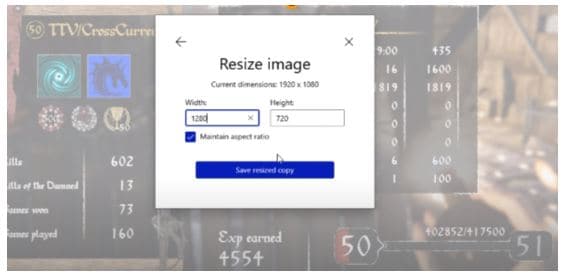
Step4 Click the upload thumbnail button on YouTube and import your resized image.

Method 2. Online YouTube Thumbnail Size Converter
The second method you can use is the online YouTube thumbnail size converter. As it completely works in browsers, you do not need to worry about any app installation to access the feature. Furthermore, using online YouTube thumbnail size converters ensures you maintain your image resolution and prevents it from getting blurry or pixelated.
There are various YouTube thumbnail resizers available online. Some of the most popular are Fotor, Super Image Converter, Pixelied, Super Image Converter , Adobe Express , Newisty, and Promo . Let us focus on the last online tool and the steps on how to use it.
Promo is a free online software you can use to convert an image to a YouTube thumbnail. It is one of the best YouTube Thumbnail tools as it uses simple operation steps and automatically resizes your image without losing its quality.
Here are the steps on how to use the Promo YouTube thumbnail size converter:
Step1 Go to Promo’s official website and import your image

Step2 Scroll down and find the YouTube thumbnail size where your resized image is displayed. Then, click “Download.”
It is without a doubt that online YouTube thumbnail resizers are great tools for converting your image to an ideal YouTube thumbnail. But it would be much better if you resize your video using the same app you use for editing. That way, you will save time using two separate apps, and your task will be much more efficient using an all-in-one video editing tool.
Wondershare Filmora , one of the most well-known software for creating high-quality and compelling videos, combines these functions in one app. Filmora is not just an excellent software for crafting YouTube videos but also a reliable tool you can use in creating and resizing YouTube thumbnails.
Free Download For Win 7 or later(64-bit)
Free Download For macOS 10.14 or later
Here is the step-by-step tutorial on how to use Filmora in resizing your YouTube thumbnail. It is divided into two parts:
1. Take a Snapshot as the Thumbnail with Filmora
Step1 Open the video in the timeline, click the play icon in the player window, and pause when you reach the desired frame for the YouTube thumbnail. Click the camera icon to take a snapshot.

Step2 In the snapshot window, choose to save the snapshot as a PNG or JPG file.
Step3 Select the output storage location and click OK.

2. Resize the YouTube Thumbnail
Step1 Import the image into the app timeline.
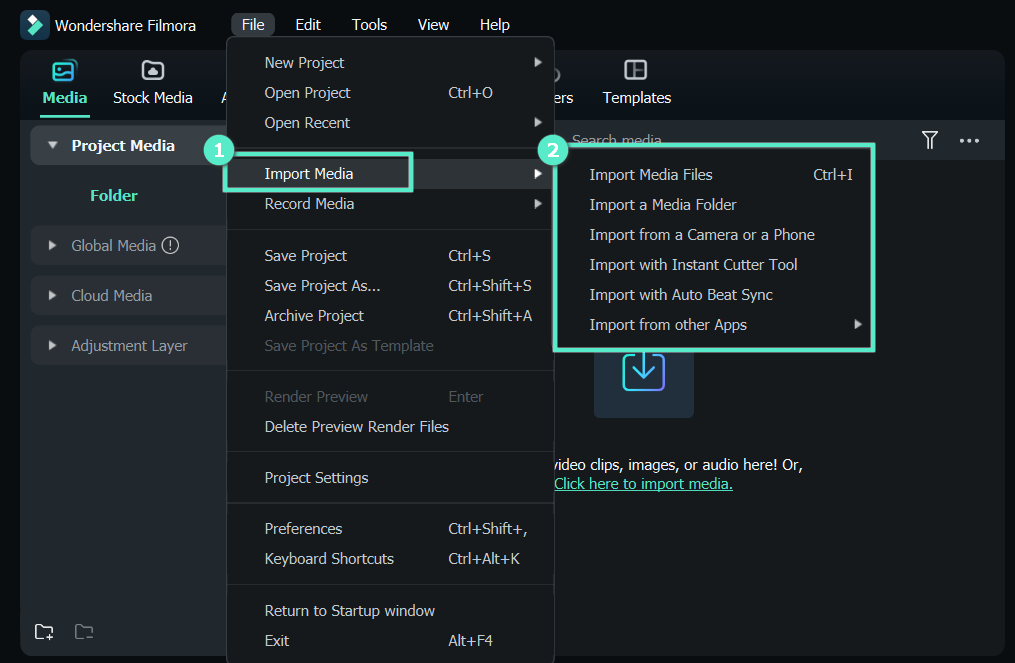
Step2 Drag and drop the image into the timeline and click the green “Export“ button. In the popup Export window, select GIF. Next, click “Settings“ to adjust the resolution.

Step3 As the recommended size of a YouTube Thumbnail is 1280 * 720 pixels, you can set the resolution to 1280 * 720. Then click Apply and Export the GIF. You can now upload the GIF thumbnail to your YouTube account.
Method 4. Convert Images to YouTube Thumbnail Using Third-Party Software
In addition to using dedicated video editing software, several third-party image editing programs can be used to resize images for use as YouTube thumbnails. Programs like GIMP are popular for this purpose, as it offers a wide range of tools and features for editing and resizing images.
This program allows you to import an image, resize it to the dimensions required for a YouTube thumbnail (typically 1280 x 720 pixels), and save the edited version to your desired location. Using an image editing program can be a good option if you need more control over the appearance of your thumbnail or if you want to make more extensive edits beyond simply resizing the image.
To resize an image using an image editing program like GIMP, follow these steps:
Step1 Install and launch GIMP on your computer.
Step2 Click on “File“ > “Open,” then search for the file you want to resize.
Step3 Click on “Image“ > “Scale Image“ and make sure that the resolution is 1920 by 1080.
Step4 Click on “File“ > “Export As“ and toggle the “Select File Type (By Extension)“ option. Choose JPG/JPEG format because it can compress the thumbnail enough to stay within the limit of 2 megabytes.
Step5 You can change the quality of the image and click the “Export“ button to save the thumbnail.
Comparison of These 4 YouTube Thumbnail Resizing Methods
Now that we’ve explored the four methods for resizing YouTube thumbnails, it’s time to compare the pros and cons of each method. In this section, we’ll consider factors such as ease of use, speed, quality, cost, and compatibility to help you determine the best option for your needs.
Take a look at the table below for a more detailed comparison.
| | Windows Default App | Online YouTube Thumbnail Size Converter | Wondershare Filmora | Third-Party Software | |
| ————————————————– | ——————————————- | ———————– | ———————— | ——– |
| Other Software Required or Not | No | Yes (Internet Browser) | Yes | Yes |
| Internet Connection Required | No | Yes | No | No |
| Complexity of Operations | Easy | Easy | Easy | Moderate |
| Support Other Editing of the YouTube Thumbnail | No | No | Yes | Yes |
| File Size Limit | None | 25MB | None | None |
Resizing YouTube thumbnails using the Windows default app is a quick and easy method that requires no additional software or tools. However, the quality of the resized thumbnail may improve if the original image is low resolution, and this method is only suitable for users on Windows operating systems.
Online YouTube thumbnail size converters are convenient and easy to use, and they can be accessed from any device with an internet connection. They also typically preserve the quality of the original image. However, some online converters may have size limits or require a subscription to unlock all features, and using an online converter can be slower than using a dedicated software tool.
Using Wondershare Filmora allows you to create and edit YouTube thumbnails within a single application, which can be a time-saving advantage if you’re already using Filmora for other video editing tasks. However, Filmora is a paid software, so there is a cost associated with using it, and it may have a steeper learning curve for users new to video editing.
Image editing programs like GIMP offer many features and tools for customizing your thumbnail, including adding text, applying filters, and making more extensive edits beyond simply resizing the image. They also typically offer more control over the quality and appearance of the resized thumbnail.
However, using a third-party image editing program may require a learning curve and maybe more time-consuming than other methods, and there may be a cost associated with purchasing the software.
Each of the four methods for resizing YouTube thumbnails has its pros and cons, and the best method will depend on the user’s specific needs and preferences.
Conclusion
This article explored four methods for resizing YouTube thumbnails: using the Windows default app, online converters, Wondershare Filmora, and image editing programs like GIMP. Each method has advantages and disadvantages; the best one depends on your specific needs and preferences. No matter your chosen method, you can resize YouTube thumbnails confidently with these tools and techniques.
Free Download For macOS 10.14 or later
Here is the step-by-step tutorial on how to use Filmora in resizing your YouTube thumbnail. It is divided into two parts:
1. Take a Snapshot as the Thumbnail with Filmora
Step1 Open the video in the timeline, click the play icon in the player window, and pause when you reach the desired frame for the YouTube thumbnail. Click the camera icon to take a snapshot.

Step2 In the snapshot window, choose to save the snapshot as a PNG or JPG file.
Step3 Select the output storage location and click OK.

2. Resize the YouTube Thumbnail
Step1 Import the image into the app timeline.

Step2 Drag and drop the image into the timeline and click the green “Export“ button. In the popup Export window, select GIF. Next, click “Settings“ to adjust the resolution.

Step3 As the recommended size of a YouTube Thumbnail is 1280 * 720 pixels, you can set the resolution to 1280 * 720. Then click Apply and Export the GIF. You can now upload the GIF thumbnail to your YouTube account.
Method 4. Convert Images to YouTube Thumbnail Using Third-Party Software
In addition to using dedicated video editing software, several third-party image editing programs can be used to resize images for use as YouTube thumbnails. Programs like GIMP are popular for this purpose, as it offers a wide range of tools and features for editing and resizing images.
This program allows you to import an image, resize it to the dimensions required for a YouTube thumbnail (typically 1280 x 720 pixels), and save the edited version to your desired location. Using an image editing program can be a good option if you need more control over the appearance of your thumbnail or if you want to make more extensive edits beyond simply resizing the image.
To resize an image using an image editing program like GIMP, follow these steps:
Step1 Install and launch GIMP on your computer.
Step2 Click on “File“ > “Open,” then search for the file you want to resize.
Step3 Click on “Image“ > “Scale Image“ and make sure that the resolution is 1920 by 1080.
Step4 Click on “File“ > “Export As“ and toggle the “Select File Type (By Extension)“ option. Choose JPG/JPEG format because it can compress the thumbnail enough to stay within the limit of 2 megabytes.
Step5 You can change the quality of the image and click the “Export“ button to save the thumbnail.
Comparison of These 4 YouTube Thumbnail Resizing Methods
Now that we’ve explored the four methods for resizing YouTube thumbnails, it’s time to compare the pros and cons of each method. In this section, we’ll consider factors such as ease of use, speed, quality, cost, and compatibility to help you determine the best option for your needs.
Take a look at the table below for a more detailed comparison.
| | Windows Default App | Online YouTube Thumbnail Size Converter | Wondershare Filmora | Third-Party Software | |
| ————————————————– | ——————————————- | ———————– | ———————— | ——– |
| Other Software Required or Not | No | Yes (Internet Browser) | Yes | Yes |
| Internet Connection Required | No | Yes | No | No |
| Complexity of Operations | Easy | Easy | Easy | Moderate |
| Support Other Editing of the YouTube Thumbnail | No | No | Yes | Yes |
| File Size Limit | None | 25MB | None | None |
Resizing YouTube thumbnails using the Windows default app is a quick and easy method that requires no additional software or tools. However, the quality of the resized thumbnail may improve if the original image is low resolution, and this method is only suitable for users on Windows operating systems.
Online YouTube thumbnail size converters are convenient and easy to use, and they can be accessed from any device with an internet connection. They also typically preserve the quality of the original image. However, some online converters may have size limits or require a subscription to unlock all features, and using an online converter can be slower than using a dedicated software tool.
Using Wondershare Filmora allows you to create and edit YouTube thumbnails within a single application, which can be a time-saving advantage if you’re already using Filmora for other video editing tasks. However, Filmora is a paid software, so there is a cost associated with using it, and it may have a steeper learning curve for users new to video editing.
Image editing programs like GIMP offer many features and tools for customizing your thumbnail, including adding text, applying filters, and making more extensive edits beyond simply resizing the image. They also typically offer more control over the quality and appearance of the resized thumbnail.
However, using a third-party image editing program may require a learning curve and maybe more time-consuming than other methods, and there may be a cost associated with purchasing the software.
Each of the four methods for resizing YouTube thumbnails has its pros and cons, and the best method will depend on the user’s specific needs and preferences.
Conclusion
This article explored four methods for resizing YouTube thumbnails: using the Windows default app, online converters, Wondershare Filmora, and image editing programs like GIMP. Each method has advantages and disadvantages; the best one depends on your specific needs and preferences. No matter your chosen method, you can resize YouTube thumbnails confidently with these tools and techniques.
Viewership Volume: The Financial Impact of One Million Views
How much does YouTube pay for 1 million views? As a YouTuber, you become a business, and it helps to know the YouTube views to money earned.
If you are trying to earn a living on YouTube, one of the most excellent marks of a successful creator is often earning 1 million views on the platform (click here for tips on how to do that ). It usually serves as a benchmark for a time at which a channel is relatively sustainable. However, rather than meaning a YouTuber has made it big financially, reaching 1 million views is more likely to say they can expect to start making real money.
When you hit 1 million views on any video on YouTube, you’ll have a nice paycheck. You’ll likely have to hit 1 million views on at least a few other videos before you could consider quitting your full-time job and doing YouTube as your primary source of income. This article will explore what 1 million views mean for your YouTube channel. We will look more into how revenue is calculated on YouTube and what you can expect to earn-out of a video with 1 million views.
In this article
02 How is the revenue calculated?
04 How monetization is changing
$2000 for 1 Million Views
In a case study performed by Standupbits and Josef Holm, a YouTube channel is created with over 3500 comedy clips that a comedian and stand up actor had put together over the years. The YouTube clips took extensive time to upload, and the library was prevalent. The YouTube ad revenue only equated to around $2000.
Although StandUpBits had uploaded thousands of clips and received over 1 million views on their channel, their library was only able to earn around $2000 from the ad revenue sharing. It’s estimated the group had spent approximately $25,000 to finish off the clips, edit them, and upload them, which means they invested far more in the channel than they earned.
If you are thinking about a career on YouTube, reaching 1 million views might seem like an excellent target for making a successful page, and it is, but reaching 1 million views doesn’t magically guarantee financial success.
How Revenue is Calculated
In order to understand how revenue is calculated over the YouTube marketplace, a YouTube user needs to first understand what the partnership program entails. Basically, a YouTube partner has the ability to monetize their videos and serve ads on their content.
In order to join this program you need to be able to commit to uploading ad-friendly (nothing controversial) content that is completely original and high quality and which also adheres to all of the community guidelines and YouTube’s Terms of Service (YouTube actually just introduced a couple of stricter rules - click here for YouTube Monetization 2018 ).
As of February 2018, to qualify for ad revenue, the YouTube channel must have:
1. You will need to have 1,000 subscribers.
2. You will need to have accumulated 4,000 hours of watch time over the last 12 months.
The AdSense revenue that you earn through YouTube will vary depending on a large number of factors related to the specific ads running and what type of content you produce.
Understanding CPM and CPCs
What is CPM?
CPM stands as the ‘cost per mille’ or ‘cost per thousand.’
Your CPM is the amount you earn for 1000 ad impressions (1000 viewers clicking on an ad or watching a skippable ad). Your CPM is usually related to the demographics of your users, the content you regularly post, the length of time on the videos that you post, and the gender of your viewers. YouTube CPMs can vary depending on the advertising bid the company has submitted with Google. The lowest bids can be around .33 cents per thousand views, and other advertisers can spend as much as $10 for 1000 views.
For example, gaming is the most prominent genre on YouTube, and there are many gaming-related ads to go around, but most of them are very low-paying (i.e., ads for free online games). Only YouTube gamers with extensive subscriber bases get higher-paying ads.
What is CPC?
CPC means ‘cost per click.’ A CPC ad interprets an ‘ad impression’ as a click on an ad rather than a viewer merely seeing it. Most YouTube ads are CPC ads, but skippable video ads are CPV (cost per view), and impressions are based on viewers watching the ad instead of skipping it.
Changes on YouTube and How You Can Earn More
Changes that have affected the way that revenue is calculated are the ability to skip ads and the lower click rates on advertising through YouTube. A huge portion of viewers uses ad blockers, which eliminates them as potential sources of revenue.
Ultimately earning ad revenue is a big game of reaching targeted demographics and achieving ongoing viewership for your videos. It does matter where your viewers are going to be viewing from, and the audience that your viewers are in (viewers from areas with more disposable income to spend on the products advertised to them are worth more to advertisers, as are viewers who are interested in higher-cost items).
Forming relationships with brands and doing product placements or sponsored videos can be a great way to earn more revenue than you will through AdSense. Just make sure the brands you build relationships with are relevant to your audience and that you incorporate the advertising in ways that don’t annoy your viewers.
Use the right keywords in your titles, descriptions, and tags. Without this keyword information, YouTube may pair your video with advertisers that aren’t right for your audience. First, using the wrong keywords won’t put your content in front of the viewers who want to see it, and, second, the ads that run won’t be a good fit and thus are less likely to be clicked on. It’s also imperative that you focus on the metadata of every video. It can take some extra time to add in all of this information for each video, but it is well worth it if you are trying to get paid from YouTube.
Click here for 4 ways to start growing your channel faster.
So, how much does YouTube pay for 1 million views? Not as much as you might think. But don’t give up, because ad revenue is not the only way to make money through YouTube. Here are4 alternative ways to make money as a YouTuber .
Wondershare Filmora
Get started easily with Filmora’s powerful performance, intuitive interface, and countless effects!
Try It Free Try It Free Try It Free

02 How is the revenue calculated?
04 How monetization is changing
$2000 for 1 Million Views
In a case study performed by Standupbits and Josef Holm, a YouTube channel is created with over 3500 comedy clips that a comedian and stand up actor had put together over the years. The YouTube clips took extensive time to upload, and the library was prevalent. The YouTube ad revenue only equated to around $2000.
Although StandUpBits had uploaded thousands of clips and received over 1 million views on their channel, their library was only able to earn around $2000 from the ad revenue sharing. It’s estimated the group had spent approximately $25,000 to finish off the clips, edit them, and upload them, which means they invested far more in the channel than they earned.
If you are thinking about a career on YouTube, reaching 1 million views might seem like an excellent target for making a successful page, and it is, but reaching 1 million views doesn’t magically guarantee financial success.
How Revenue is Calculated
In order to understand how revenue is calculated over the YouTube marketplace, a YouTube user needs to first understand what the partnership program entails. Basically, a YouTube partner has the ability to monetize their videos and serve ads on their content.
In order to join this program you need to be able to commit to uploading ad-friendly (nothing controversial) content that is completely original and high quality and which also adheres to all of the community guidelines and YouTube’s Terms of Service (YouTube actually just introduced a couple of stricter rules - click here for YouTube Monetization 2018 ).
As of February 2018, to qualify for ad revenue, the YouTube channel must have:
1. You will need to have 1,000 subscribers.
2. You will need to have accumulated 4,000 hours of watch time over the last 12 months.
The AdSense revenue that you earn through YouTube will vary depending on a large number of factors related to the specific ads running and what type of content you produce.
Understanding CPM and CPCs
What is CPM?
CPM stands as the ‘cost per mille’ or ‘cost per thousand.’
Your CPM is the amount you earn for 1000 ad impressions (1000 viewers clicking on an ad or watching a skippable ad). Your CPM is usually related to the demographics of your users, the content you regularly post, the length of time on the videos that you post, and the gender of your viewers. YouTube CPMs can vary depending on the advertising bid the company has submitted with Google. The lowest bids can be around .33 cents per thousand views, and other advertisers can spend as much as $10 for 1000 views.
For example, gaming is the most prominent genre on YouTube, and there are many gaming-related ads to go around, but most of them are very low-paying (i.e., ads for free online games). Only YouTube gamers with extensive subscriber bases get higher-paying ads.
What is CPC?
CPC means ‘cost per click.’ A CPC ad interprets an ‘ad impression’ as a click on an ad rather than a viewer merely seeing it. Most YouTube ads are CPC ads, but skippable video ads are CPV (cost per view), and impressions are based on viewers watching the ad instead of skipping it.
Changes on YouTube and How You Can Earn More
Changes that have affected the way that revenue is calculated are the ability to skip ads and the lower click rates on advertising through YouTube. A huge portion of viewers uses ad blockers, which eliminates them as potential sources of revenue.
Ultimately earning ad revenue is a big game of reaching targeted demographics and achieving ongoing viewership for your videos. It does matter where your viewers are going to be viewing from, and the audience that your viewers are in (viewers from areas with more disposable income to spend on the products advertised to them are worth more to advertisers, as are viewers who are interested in higher-cost items).
Forming relationships with brands and doing product placements or sponsored videos can be a great way to earn more revenue than you will through AdSense. Just make sure the brands you build relationships with are relevant to your audience and that you incorporate the advertising in ways that don’t annoy your viewers.
Use the right keywords in your titles, descriptions, and tags. Without this keyword information, YouTube may pair your video with advertisers that aren’t right for your audience. First, using the wrong keywords won’t put your content in front of the viewers who want to see it, and, second, the ads that run won’t be a good fit and thus are less likely to be clicked on. It’s also imperative that you focus on the metadata of every video. It can take some extra time to add in all of this information for each video, but it is well worth it if you are trying to get paid from YouTube.
Click here for 4 ways to start growing your channel faster.
So, how much does YouTube pay for 1 million views? Not as much as you might think. But don’t give up, because ad revenue is not the only way to make money through YouTube. Here are4 alternative ways to make money as a YouTuber .
Wondershare Filmora
Get started easily with Filmora’s powerful performance, intuitive interface, and countless effects!
Try It Free Try It Free Try It Free

02 How is the revenue calculated?
04 How monetization is changing
$2000 for 1 Million Views
In a case study performed by Standupbits and Josef Holm, a YouTube channel is created with over 3500 comedy clips that a comedian and stand up actor had put together over the years. The YouTube clips took extensive time to upload, and the library was prevalent. The YouTube ad revenue only equated to around $2000.
Although StandUpBits had uploaded thousands of clips and received over 1 million views on their channel, their library was only able to earn around $2000 from the ad revenue sharing. It’s estimated the group had spent approximately $25,000 to finish off the clips, edit them, and upload them, which means they invested far more in the channel than they earned.
If you are thinking about a career on YouTube, reaching 1 million views might seem like an excellent target for making a successful page, and it is, but reaching 1 million views doesn’t magically guarantee financial success.
How Revenue is Calculated
In order to understand how revenue is calculated over the YouTube marketplace, a YouTube user needs to first understand what the partnership program entails. Basically, a YouTube partner has the ability to monetize their videos and serve ads on their content.
In order to join this program you need to be able to commit to uploading ad-friendly (nothing controversial) content that is completely original and high quality and which also adheres to all of the community guidelines and YouTube’s Terms of Service (YouTube actually just introduced a couple of stricter rules - click here for YouTube Monetization 2018 ).
As of February 2018, to qualify for ad revenue, the YouTube channel must have:
1. You will need to have 1,000 subscribers.
2. You will need to have accumulated 4,000 hours of watch time over the last 12 months.
The AdSense revenue that you earn through YouTube will vary depending on a large number of factors related to the specific ads running and what type of content you produce.
Understanding CPM and CPCs
What is CPM?
CPM stands as the ‘cost per mille’ or ‘cost per thousand.’
Your CPM is the amount you earn for 1000 ad impressions (1000 viewers clicking on an ad or watching a skippable ad). Your CPM is usually related to the demographics of your users, the content you regularly post, the length of time on the videos that you post, and the gender of your viewers. YouTube CPMs can vary depending on the advertising bid the company has submitted with Google. The lowest bids can be around .33 cents per thousand views, and other advertisers can spend as much as $10 for 1000 views.
For example, gaming is the most prominent genre on YouTube, and there are many gaming-related ads to go around, but most of them are very low-paying (i.e., ads for free online games). Only YouTube gamers with extensive subscriber bases get higher-paying ads.
What is CPC?
CPC means ‘cost per click.’ A CPC ad interprets an ‘ad impression’ as a click on an ad rather than a viewer merely seeing it. Most YouTube ads are CPC ads, but skippable video ads are CPV (cost per view), and impressions are based on viewers watching the ad instead of skipping it.
Changes on YouTube and How You Can Earn More
Changes that have affected the way that revenue is calculated are the ability to skip ads and the lower click rates on advertising through YouTube. A huge portion of viewers uses ad blockers, which eliminates them as potential sources of revenue.
Ultimately earning ad revenue is a big game of reaching targeted demographics and achieving ongoing viewership for your videos. It does matter where your viewers are going to be viewing from, and the audience that your viewers are in (viewers from areas with more disposable income to spend on the products advertised to them are worth more to advertisers, as are viewers who are interested in higher-cost items).
Forming relationships with brands and doing product placements or sponsored videos can be a great way to earn more revenue than you will through AdSense. Just make sure the brands you build relationships with are relevant to your audience and that you incorporate the advertising in ways that don’t annoy your viewers.
Use the right keywords in your titles, descriptions, and tags. Without this keyword information, YouTube may pair your video with advertisers that aren’t right for your audience. First, using the wrong keywords won’t put your content in front of the viewers who want to see it, and, second, the ads that run won’t be a good fit and thus are less likely to be clicked on. It’s also imperative that you focus on the metadata of every video. It can take some extra time to add in all of this information for each video, but it is well worth it if you are trying to get paid from YouTube.
Click here for 4 ways to start growing your channel faster.
So, how much does YouTube pay for 1 million views? Not as much as you might think. But don’t give up, because ad revenue is not the only way to make money through YouTube. Here are4 alternative ways to make money as a YouTuber .
Wondershare Filmora
Get started easily with Filmora’s powerful performance, intuitive interface, and countless effects!
Try It Free Try It Free Try It Free

02 How is the revenue calculated?
04 How monetization is changing
$2000 for 1 Million Views
In a case study performed by Standupbits and Josef Holm, a YouTube channel is created with over 3500 comedy clips that a comedian and stand up actor had put together over the years. The YouTube clips took extensive time to upload, and the library was prevalent. The YouTube ad revenue only equated to around $2000.
Although StandUpBits had uploaded thousands of clips and received over 1 million views on their channel, their library was only able to earn around $2000 from the ad revenue sharing. It’s estimated the group had spent approximately $25,000 to finish off the clips, edit them, and upload them, which means they invested far more in the channel than they earned.
If you are thinking about a career on YouTube, reaching 1 million views might seem like an excellent target for making a successful page, and it is, but reaching 1 million views doesn’t magically guarantee financial success.
How Revenue is Calculated
In order to understand how revenue is calculated over the YouTube marketplace, a YouTube user needs to first understand what the partnership program entails. Basically, a YouTube partner has the ability to monetize their videos and serve ads on their content.
In order to join this program you need to be able to commit to uploading ad-friendly (nothing controversial) content that is completely original and high quality and which also adheres to all of the community guidelines and YouTube’s Terms of Service (YouTube actually just introduced a couple of stricter rules - click here for YouTube Monetization 2018 ).
As of February 2018, to qualify for ad revenue, the YouTube channel must have:
1. You will need to have 1,000 subscribers.
2. You will need to have accumulated 4,000 hours of watch time over the last 12 months.
The AdSense revenue that you earn through YouTube will vary depending on a large number of factors related to the specific ads running and what type of content you produce.
Understanding CPM and CPCs
What is CPM?
CPM stands as the ‘cost per mille’ or ‘cost per thousand.’
Your CPM is the amount you earn for 1000 ad impressions (1000 viewers clicking on an ad or watching a skippable ad). Your CPM is usually related to the demographics of your users, the content you regularly post, the length of time on the videos that you post, and the gender of your viewers. YouTube CPMs can vary depending on the advertising bid the company has submitted with Google. The lowest bids can be around .33 cents per thousand views, and other advertisers can spend as much as $10 for 1000 views.
For example, gaming is the most prominent genre on YouTube, and there are many gaming-related ads to go around, but most of them are very low-paying (i.e., ads for free online games). Only YouTube gamers with extensive subscriber bases get higher-paying ads.
What is CPC?
CPC means ‘cost per click.’ A CPC ad interprets an ‘ad impression’ as a click on an ad rather than a viewer merely seeing it. Most YouTube ads are CPC ads, but skippable video ads are CPV (cost per view), and impressions are based on viewers watching the ad instead of skipping it.
Changes on YouTube and How You Can Earn More
Changes that have affected the way that revenue is calculated are the ability to skip ads and the lower click rates on advertising through YouTube. A huge portion of viewers uses ad blockers, which eliminates them as potential sources of revenue.
Ultimately earning ad revenue is a big game of reaching targeted demographics and achieving ongoing viewership for your videos. It does matter where your viewers are going to be viewing from, and the audience that your viewers are in (viewers from areas with more disposable income to spend on the products advertised to them are worth more to advertisers, as are viewers who are interested in higher-cost items).
Forming relationships with brands and doing product placements or sponsored videos can be a great way to earn more revenue than you will through AdSense. Just make sure the brands you build relationships with are relevant to your audience and that you incorporate the advertising in ways that don’t annoy your viewers.
Use the right keywords in your titles, descriptions, and tags. Without this keyword information, YouTube may pair your video with advertisers that aren’t right for your audience. First, using the wrong keywords won’t put your content in front of the viewers who want to see it, and, second, the ads that run won’t be a good fit and thus are less likely to be clicked on. It’s also imperative that you focus on the metadata of every video. It can take some extra time to add in all of this information for each video, but it is well worth it if you are trying to get paid from YouTube.
Click here for 4 ways to start growing your channel faster.
So, how much does YouTube pay for 1 million views? Not as much as you might think. But don’t give up, because ad revenue is not the only way to make money through YouTube. Here are4 alternative ways to make money as a YouTuber .
Wondershare Filmora
Get started easily with Filmora’s powerful performance, intuitive interface, and countless effects!
Try It Free Try It Free Try It Free

- Title: [Updated] Maximize Engagement with Custom YouTube Thumbnails
- Author: George
- Created at : 2024-08-01 05:32:50
- Updated at : 2024-08-02 05:32:50
- Link: https://facebook-video-share.techidaily.com/updated-maximize-engagement-with-custom-youtube-thumbnails/
- License: This work is licensed under CC BY-NC-SA 4.0.



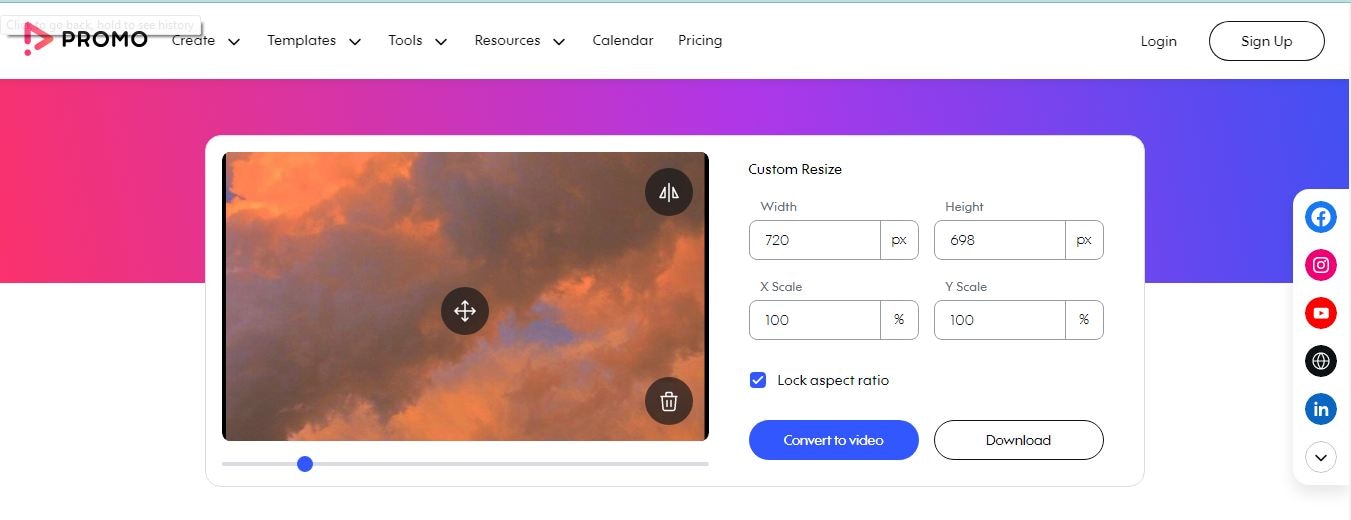


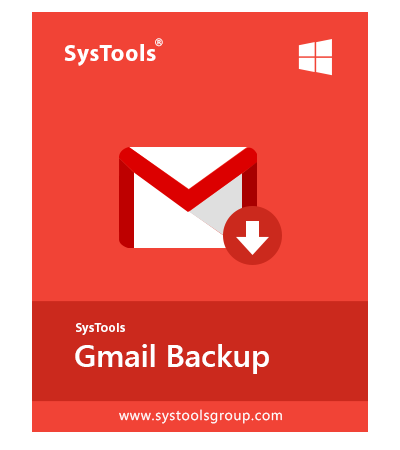
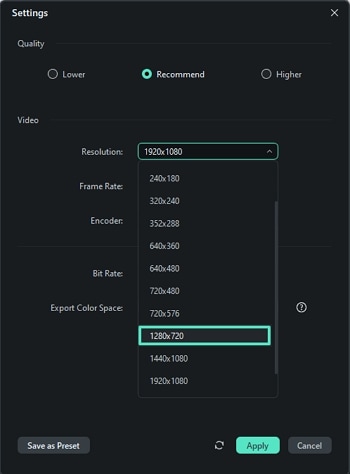
 CollageIt Pro
CollageIt Pro
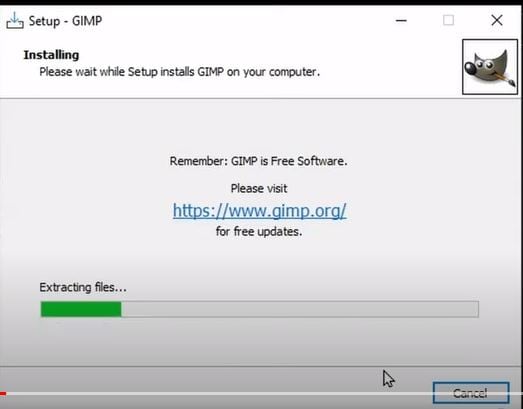


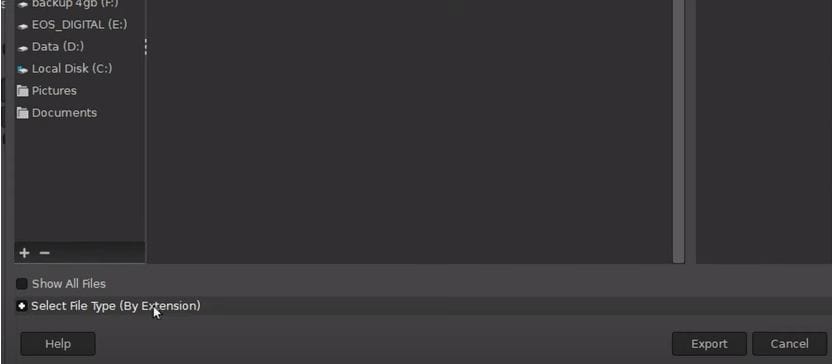


.png) Kanto Player Professional
Kanto Player Professional
 PDF application, powered by AI-based OCR, for unified workflows with both digital and scanned documents.
PDF application, powered by AI-based OCR, for unified workflows with both digital and scanned documents. 

 WinUtilities Pro
WinUtilities Pro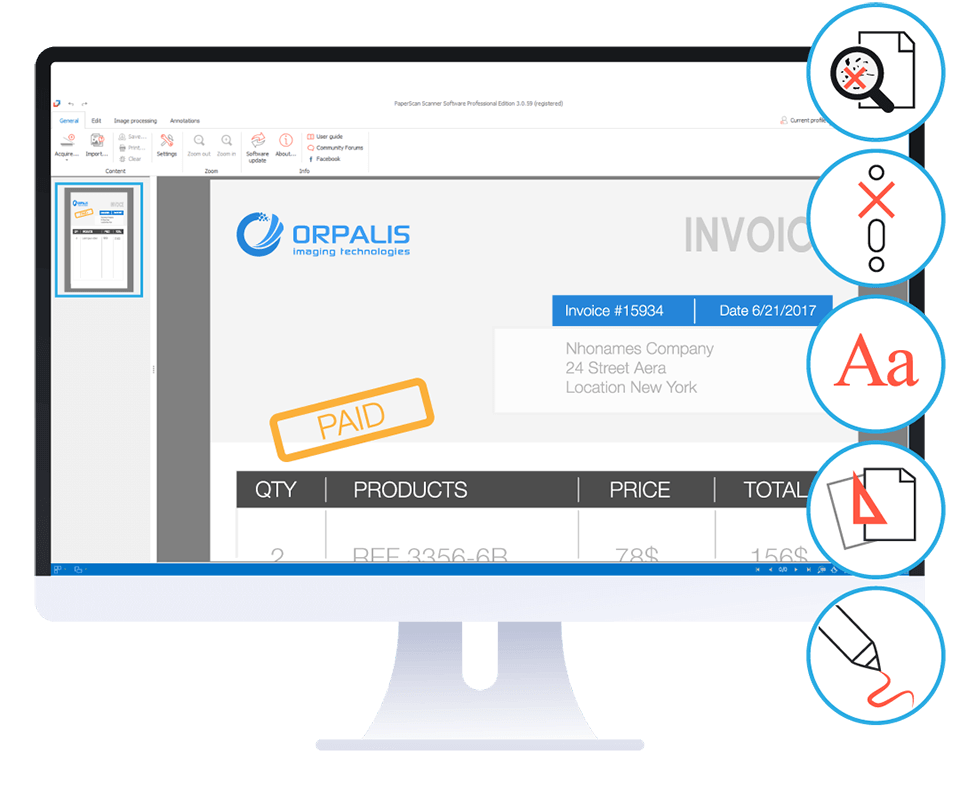 PaperScan Professional: PaperScan Scanner Software is a powerful TWAIN & WIA scanning application centered on one idea: making document acquisition an unparalleled easy task for anyone.
PaperScan Professional: PaperScan Scanner Software is a powerful TWAIN & WIA scanning application centered on one idea: making document acquisition an unparalleled easy task for anyone. CalendarBudget - Monthly subscription membership to CalendarBudget via web browser or mobile app. Support included.
CalendarBudget - Monthly subscription membership to CalendarBudget via web browser or mobile app. Support included. 